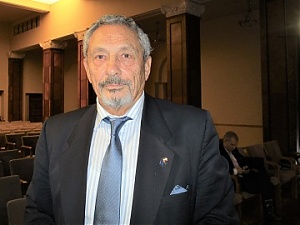Analytics, Ecology, Economics, EU – Baltic States, Modern EU
International Internet Magazine. Baltic States news & analytics
Tuesday, 23.04.2024, 13:11
Energy policy and “green deal”: the EU and Baltic’s perspectives
 Print version
Print version |
|---|
At the first meeting of the EU states’ energy
ministers at the Council’s configuration, Estonian Commissioner revealed her
vision on energy “share” in the “green transition”. She insisted that there
should be at least 3 aspects involved in such transition reflecting major
aspects in the member states’ changing energy policies.
Three pillars
The first
pillar, as the Commissioner mentioned, was “the people”, meaning that achieving
the European goal of turning “climate-neutral” by 2050 shall be within the “the
tangible benefits for consumers”: i.e. having affordable, secure and clean
energy.
As practical steps in towards that
goal, the Commissioner suggests creating “open, integrated and well-functioning
energy markets” in the member states. For example, the member states shall address
such issues as energy security and focusing on energy efficiency both in the
construction sector and in other national policy development areas. Thus, the
industrial sectors shall use clean energy technologies to support industrial
competitiveness.
The Commission is going to assist
the states in these directions to promote “green climate transition”; from the
side of the EU institutions, there would be a team of the Executive
Vice-President Frans Timmermans and Commissioner Elisa Ferreira (cohesion and
reforms Commissioner) to draft a “just transition mechanism” that will support the
member states, as well as people and regions, in an effective and targeted way.
The second
pillar includes cutting all harmful emissions in a faster and comprehensive
mode. The incentive is quite urgent as the energy sector's
contribution to the health of people in the member states is quite damaging. The
Commission President has already announced the Union’s next year comprehensive
plan to reduce emissions to over 50 per cent by 2030.
Energy sector in the states will
play a key role in reaching the target, in particular through more energy
efficiency, renewable energy sources, strengthening contribution of offshore
wind energy and pushing industries to further cost-effective decarbonisation by
using synergies across the different sectors. Besides, the states shall be
driven towards using “clean gases”, i.e. biogas and hydrogen making important
contribution to “smart sector integration”.
The third
pillar is about energy issues with the EU neighbour states and partners in the task of reducing global pollution:
already at present the EU member states account for less than
10 per cent of global emissions.
However, to tackle global pollution
some concentrated and common efforts of states are needed. In this sense, the
energy sector also plays a vital role as energy is one of the most traded
commodities among the EU states and globally.
Therefore, the EU institutions and
the member states have to intensify their efforts in external energy relations.
For example, the Commissioner noted, the EU intended to develop a “green agenda”
for the Western Balkans and place a greater emphasis on cooperation with
Africa, in particular the Southern states. The main adequate instrumental toll
in this regard would be the member states’ national energy and climate
plans, which would help the EU to reach the “green deal” targets.
General reference: https://ec.europa.eu/commission/presscorner/detail/en/SPEECH_19_6680








 «The Baltic Course» Is Sold and Stays in Business!
«The Baltic Course» Is Sold and Stays in Business!

